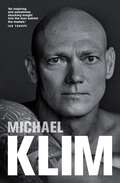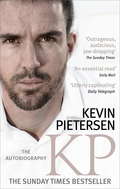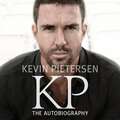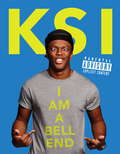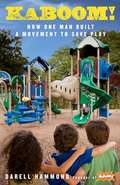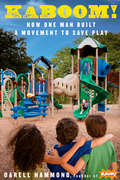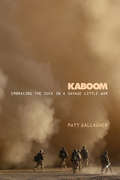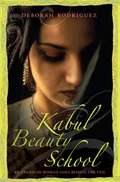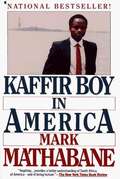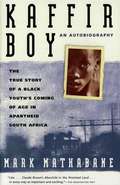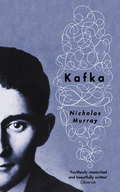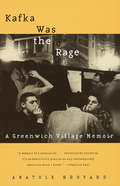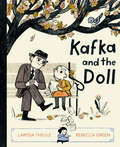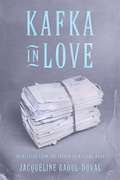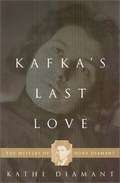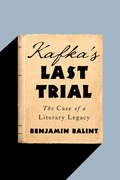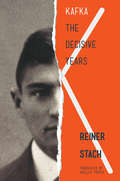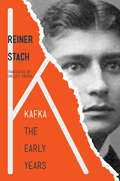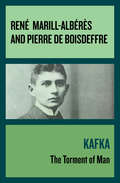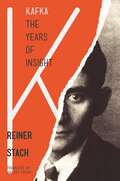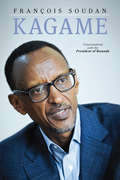- Table View
- List View
KLIM
by Michael KlimAs one of Australia's most celebrated athletes, Michael Klim's impact extends far beyond the pool.Klim's journey to greatness began behind the Iron Curtain, in communist-era Poland. His family made a bid for freedom in the 1980s and immigrated to Australia, where swimming became his passport into a new culture and eventually led him to become one of his adopted country's great sporting heroes.His crowning moment came at the 2000 Sydney Olympics, where he captured the hearts of millions with his gold medal performances and world record-breaking swims.But being a champion athlete does not come without personal challenges. Beyond his achievements in the pool, Klim's life has been equally compelling. Through transitions in the business world, family life and major health trials, his natural buoyancy kept him afloat - until he faced a crisis that forced him to reassess his life and fight for his future.From the heights of Olympic glory to the depths of personal adversity, KLIM is a testament to the power of passion, perseverance and the unsinkable human spirit.'An inspiring and sometimes shocking insight into the man behind the medals.' IAN THORPE'Michael Klim's finest moment isn't Olympic glory - it's the courage he summoned to share himself so honestly in this sports memoir for the ages.' RICH ROLL
KP: The Autobiography
by Kevin PietersenThe fascinating life story of professional cricketer Kevin Pietersen, MBE, from his childhood in South Africa to his recent experiences as one of the leading lights in the world of international cricket. Kevin was dropped from the England squad in February of this year, seemingly calling time on an international career that began nearly ten years earlier. The decision puzzled many observers - although the England team had failed miserably in the Ashes tour of 2013-14, Kevin was the tourists' leading run scorer across the series, and he remains the country's highest run scorer of all time across all formats of the game. This autumn Kevin will reveal all in his autobiography, telling the stories behind the many other highs and lows of his incredible career. Giving readers the full story of his life, from his childhood in South Africa to his recent experiences as one of the leading lights in the world of international cricket, this will be an autobiography that entertains and fascinates readers in equal measure.
KP: The Autobiography
by Kevin Pietersen MBETHE SUNDAY TIMES BESTSELLER'Outrageous, audacious, jaw-dropping' SUNDAY TIMES'An essential read' DAILY MAIL'Utterly captivating' DAILY TELEGRAPH'Hugely entertaining' GUARDIANThe fascinating life story of professional cricketer Kevin Pietersen, MBE, from his childhood in South Africa to his experiences as one of the leading lights in the world of international cricket.Kevin was dropped from the England squad in February 2014, seemingly calling time on an international career that began nearly ten years earlier. The decision puzzled many observers - although the England team had failed miserably in the Ashes tour of 2013-14, Kevin was the tourists' leading run scorer across the series, and he remains the country's highest run scorer of all time across all formats of the game.Kevin reveals all in his autobiography, telling the stories behind the many other highs and lows of his incredible career. Giving readers the full story of his life, from his childhood in South Africa to his experiences as one of the leading lights in the world of international cricket, KP is an autobiography that entertains and fascinates readers in equal measure.
KP: The Autobiography
by Kevin Pietersen MBEThe fascinating life story of professional cricketer Kevin Pietersen, MBE, from his childhood in South Africa to his recent experiences as one of the leading lights in the world of international cricket.Kevin was dropped from the England squad in February of this year, seemingly calling time on an international career that began nearly ten years earlier. The decision puzzled many observers - although the England team had failed miserably in the Ashes tour of 2013-14, Kevin was the tourists' leading run scorer across the series, and he remains the country's highest run scorer of all time across all formats of the game.This autumn Kevin will reveal all in his autobiography, telling the stories behind the many other highs and lows of his incredible career. Giving readers the full story of his life, from his childhood in South Africa to his recent experiences as one of the leading lights in the world of international cricket, this will be an autobiography that entertains and fascinates readers in equal measure.
KSI: I Am a Bellend
by KSIAdmitting you're a bell-end is the first step to salvation...KSI is one of the biggest and baddest YouTube stars on the planet. With over a billion views and millions of subscribers to his name, he is the undisputed king of social media. But despite this success he is a self-confessed bell-end. Excessively posting selfies, oversharing about his dead nan, spending all day scouring Tinder and suffering from red-hot Fifa rage, are just some of his undesirable online habits. However, with acceptance comes salvation and now KSI is blowing the doors off the internet to find the cure. No one is spared, as KSI takes down fellow YouTubers, trolls, paedos, Tinder catfishers and Nigerian scammers in an all-out assault on the online universe. Along the way he also reveals how to become a YouTube kingpin as well as his hot Fifa tips, before he unveils his online revolution to help save the next generation from his fate.So, if you want to avoid becoming a total bell-end, then calm your tits, and simply take the medicine KSI is dishing up.
KSI: I Am a Bellend
by KSINarrated by KSI himself, this audio has the best bits of the Beast's Bell-End including Lamborghini featuring P Money.Admitting you're a bell-end is the first step to salvation...KSI is one of the biggest and baddest YouTube stars on the planet. With over a billion views and millions of subscribers to his name, he is the undisputed king of social media. But despite this success he is a self-confessed bell-end. Excessively posting selfies, oversharing about his dead nan, spending all day scouring Tinder and suffering from red-hot Fifa rage, are just some of his undesirable online habits. However, with acceptance comes salvation and now KSI is blowing the doors off the internet to find the cure. No one is spared, as KSI takes down fellow YouTubers, trolls, paedos, Tinder catfishers and Nigerian scammers in an all-out assault on the online universe. Along the way he also reveals how to become a YouTube kingpin as well as his hot Fifa tips, before he unveils his online revolution to help save the next generation from his fate.So, if you want to avoid becoming a total bell-end, then calm your tits, and simply take the medicine KSI is dishing up.(p) 2015 Orion Publishing Group
KaBOOM! How One Man Built a Movement to Save Play
by Stuart Brown Darell HammondKaBOOM! chronicles Darell Hammond's amazing journey from a childhood spent living in a group home in Illinois to becoming the cofounder and CEO of KaBOOM!, an organization with this mission at its core: harnessing the power of community to save play for children... one playground at a time. Like The Blue Sweater and Three Cups of Tea, KaBOOM! demonstrates how one idealist can change the world and how small, civic-minded steps create a ripple effect that can precipitate change in communities and eventually change in the world at large. More than just a memoir, KaBOOM! is a call to action that will inspire readers by challenging them to rethink traditional notions of community and social change. This is the story of a man with a vision: Play is the best natural resource in a creative economy. Kids need more of it-it is not a luxury but a necessity for their lives. Through hard work, commitment, and the conviction that access to a safe play environment is the fundamental right of all children, Hammond built an organization that has raised almost $200 million, directly built 2,000 playgrounds with a million volunteers, and touched the lives of countless children and families. Photo captions are included after the index, starting on p. 287.
KaBOOM!: How One Man Built a Movement to Save Play
by Darell HammondKaBOOM! is the powerful, uplifting journey of a man who grew up in a group home with his seven brothers and sisters and went on to build a world-class nonprofit that harnesses the power of community to improve the lives of children.In 1995, Darell Hammond read an article in the Washington Post about an unthinkable tragedy: Two young children suffocated in a car on a hot summer day in southeast Washington, DC. The story indicated that the children had nowhere to play; in the absence of a playground, they had climbed into an abandoned car. Reading the article fueled Hammond's sense of injustice, and his life's mission came into focus. Hammond founded KaBOOM!, a national nonprofit that provides communities with tools, resources, and guidance to build and renovate playgrounds and playspaces. In some of the toughest and poorest neighborhoods in North America, 2,000 barren spaces have been transformed by KaBOOM! and more than a million volunteers and community members into kid-designed, fun, and imaginative places to play. This is the story of a man with a vision, a man who believes that play is the best natural resource in a creative economy and that kids need more of it. Play is not a luxury but a necessity for their lives. Through hard work, commitment, and the conviction that access to a safe play environment is the fundamental right of all children, Hammond built an organization that has touched the lives of countless children and families.Hammond's story demonstrates how one idealist can change the world and how small, civic-minded steps create a ripple effect that can transform communities and eventually the world at large.
Kaboom: Embracing the Suck in a Savage Little War
by Matthew GallagherWhen Lieutenant Matt Gallagher began his blog with the aim of keeping his family and friends apprised of his experiences, he didn't anticipate that it would resonate far beyond his intended audience. His subjects ranged from mission details to immortality, grim stories about Bon Jovi cassettes mistaken for IEDs, and the daily experiences of the Gravediggers--the code name for members of Gallagher's platoon. When the blog was shut down in June 2008 by the U.S. Army, there were more than twentyfive congressional inquiries regarding the matter as well as reports through the military grapevine that many high-ranking officials and officers at the Pentagon were disappointed that the blog had been ordered closed.
Kabul Beauty School: An American Woman Goes Behind the Veil
by Deborah RodriguezThis is the most colourful, warm, honest and at times funny view into the lives of women in Afghanistan and Deborah Rodriguez, the beautician who came from Michigan, USA, and was their teacher at the Kabul Beauty School. Since the book was published the Afghan government has clamped down on the school and Debbie had to flee the country. In this new B format edition she writes in the Afterword about her escape from Afghanistan, the decision some of her students made to leave their country, and the situa...
Kaffir Boy in America: an encounter with apartheid (kaffir boy #2)
by Mark Mathabanesequel to Mark Mathabane’s extraordinary autobiography, Kaffir Boy Continues the story of the Black South African who migrated to the United States, and tells of his adjustment to America's luxuries and freedoms, and his discovery of America's racial and social injustices
Kaffir Boy: The True Story of a Black Youth's Coming of Age in Apartheid South Africa
by Mark MathabaneThis is a rare look inside the festering adobe shanties of Alexandra, one of South Africa's notorious black townships. Rare because it comes...from the heart of a passionate young African who grew up there.
Kafka
by Nicholas MurrayThis gripping biography of the great Czech novelist, diarist and short story writer chronicles Kafka's entire (if tragically curtailed) life (1883-1924), but it focuses upon the writer's relationship to his father and his inheritance as a member of the Jewish mercantile bourgeoisie in Prague. Born into a German-speaking Jewish family, Kafka was a subject of the Austro-Hungarian empire until 1919 yet through his work he is one of the most modern of writers. While previous works have concentrated on Kafka and his women, Nicholas Murray will concentrate on his extraordinary relationship with his father which found its most eloquent literary expression in the story 'The Judgement' written in 1912 when Kafka was twenty-nine:in a reverse Oedipal move, the father condemns his son to death by drowning. This work is essential for an understanding of the intensely private and complex Kafka and the kind of writer he turned out to be - the creator in THE CASTLE, THE TRIAL and METAMORPHOSIS (the dazzling short story whose hero wakes up to find himself transformed into a giant insect) of some of the defining literature of the 20th century.
Kafka Was the Rage
by Anatole BroyardWhat Hemingway's A Moveable Feast did for Paris in the 1920s, this charming yet undeceivable memoir does for Greenwich Village in the late 1940s. In 1946, Anatole Broyard was a dapper, earnest, fledgling avant-gardist, intoxicated by books, sex, and the neighborhood that offered both in such abundance. Stylish written, mercurially witty, imbued with insights that are both affectionate and astringent, this memoir offers an indelible portrait of a lost bohemia.From the Trade Paperback edition.
Kafka and the Doll
by Larissa TheuleBased on a true story about Franz KafkaInspired by a true story, Kafka and the Doll recounts a remarkable gesture of kindness from one of the world's most bewildering and iconic writers. In the fall of 1923, Franz Kafka encountered a distraught little girl on a walk in the park. She'd lost her doll and was inconsolable. Kafka told her the doll wasn't lost, but instead, traveling the world and having grand adventures! And to reassure her, Kafka began delivering letters from the doll to the girl for weeks.The legend of Kafka and the doll has captivated imaginations for decades as it reveals the playful and compassionate side of a man known for his dark and brooding tales. Kafka and the Doll is a testament to living life to the fullest and to the life-changing power of storytelling.
Kafka in Love
by Jacqueline Raoul-DuvalKafka was an attractive, slender, and elegant man--something of a dandy, who captivated his friends and knew how to charm women. He seemed to have had four important love affairs: Felice, Julie, Milena, and Dora. All of them lived far away, in Berlin or Vienna, and perhaps that's one of the reasons that he loved them: he chose long-distance relationships so he could have the pleasure of writing to them, without the burden of having to live with them. He was engaged to all four women, and four times he avoided marriage. At the end of each love affair, he threw himself into his writing and produced some of his most famous novels: Amerika, The Trial, and The Castle. In this charming book, author Jacqueline Raoul-Duval follows the paper trail of Kafka's ardor. She uses his voice in her own writing, and a third of the book is pulled from Kafka's journals. It is the perfect introduction to this giant of world literature, and captures his life and romances in a style worthy of his own.
Kafka's Last Love: The Mystery of Dora Diamant
by Kathi DiamondPublisher's Weekly: Franz Kafka's story is well known, Dora Diamant's is not. She was, as the title states, his last love, and the author (no relation), director of the Kafka Project at San Diego State University, has assiduously tracked the traces of her subjects through personal recollections, private papers and newly opened archives in the former Soviet bloc. Dora (1898- 1952) and Kafka first met at a Baltic resort, and she was instantly captivated by his intelligence and deep sensitivity. Kafka in turn was swept away by the vivacious 25-year-old Polish-born Jew, who had fled her Orthodox family for the broader intellectual currents of Weimar Germany. But Yiddish was her first language and she knew Jewish traditions, and Kafka found her a beacon for the religion his own family had rejected. The author describes at great length the one year the lovers lived together in Berlin, but more interesting is the account of Dora and her larger family history after Kafka's painful death in 1924. Here was a woman intent on keeping Kafka's flame alive, who was forced by war and political upheaval to flee from one country after another. Many relatives died in the Holocaust. Her treasured possessions, Kafka's last diaries, were seized by the Gestapo and have never been found. For 15 years her husband, having served time in Nazi prisons and the Soviet gulag, lived in East Berlin, unaware that Dora and their daughter had survived the war. The remarkable story continues in Moscow, London, San Francisco and Tel Aviv, the far-flung points of dispersal of a family caught in the maelstroms of fascism, communism and the Holocaust.
Kafka's Last Trial: The Case Of A Literary Legacy
by Benjamin BalintThe story of the international struggle to preserve Kafka’s literary legacy. Kafka’s Last Trial begins with Kafka’s last instruction to his closest friend, Max Brod: to destroy all his remaining papers upon his death. But when the moment arrived in 1924, Brod could not bring himself to burn the unpublished works of the man he considered a literary genius—even a saint. Instead, Brod devoted his life to championing Kafka’s writing, rescuing his legacy from obscurity and physical destruction. The story of Kafka’s posthumous life is itself Kafkaesque. By the time of Brod’s own death in Tel Aviv in 1968, Kafka’s major works had been published, transforming the once little-known writer into a pillar of literary modernism. Yet Brod left a wealth of still-unpublished papers to his secretary, who sold some, held on to the rest, and then passed the bulk of them on to her daughters, who in turn refused to release them. An international legal battle erupted to determine which country could claim ownership of Kafka’s work: Israel, where Kafka dreamed of living but never entered, or Germany, where Kafka’s three sisters perished in the Holocaust? Benjamin Balint offers a gripping account of the controversial trial in Israeli courts—brimming with dilemmas legal, ethical, and political—that determined the fate of Kafka’s manuscripts. Deeply informed, with sharply drawn portraits and a remarkable ability to evoke a time and place, Kafka’s Last Trial is at once a brilliant biographical portrait of a literary genius, and the story of two countries whose national obsessions with overcoming the traumas of the past came to a head in a hotly contested trial for the right to claim the literary legacy of one of our modern masters.
Kafka: A Biography
by Nicholas MurrayThis gripping biography of the great Czech novelist, diarist and short story writer chronicles Kafka's entire (if tragically curtailed) life (1883-1924), but it focuses upon the writer's relationship to his father and his inheritance as a member of the Jewish mercantile bourgeoisie in Prague. Born into a German-speaking Jewish family, Kafka was a subject of the Austro-Hungarian empire until 1919 yet through his work he is one of the most modern of writers. While previous works have concentrated on Kafka and his women, Nicholas Murray will concentrate on his extraordinary relationship with his father which found its most eloquent literary expression in the story 'The Judgement' written in 1912 when Kafka was twenty-nine:in a reverse Oedipal move, the father condemns his son to death by drowning. This work is essential for an understanding of the intensely private and complex Kafka and the kind of writer he turned out to be - the creator in THE CASTLE, THE TRIAL and METAMORPHOSIS (the dazzling short story whose hero wakes up to find himself transformed into a giant insect) of some of the defining literature of the 20th century.
Kafka: The Decisive Years
by Reiner StachThis is the acclaimed central volume of the definitive biography of Franz Kafka. Reiner Stach spent more than a decade working with over four thousand pages of journals, letters, and literary fragments, many never before available, to re-create the atmosphere in which Kafka lived and worked from 1910 to 1915, the most important and best-documented years of his life. This period, which would prove crucial to Kafka's writing and set the course for the rest of his life, saw him working with astonishing intensity on his most seminal writings--The Trial, The Metamorphosis, The Man Who Disappeared (Amerika), and The Judgment. These are also the years of Kafka's fascination with Zionism; of his tumultuous engagement to Felice Bauer; and of the outbreak of World War I. Kafka: The Decisive Years is at once an extraordinary portrait of the writer and a startlingly original contribution to the art of literary biography.
Kafka: The Early Years
by Shelley Frisch Reiner StachHow did Kafka become Kafka? This eagerly anticipated third and final volume of Reiner Stach's definitive biography of the writer answers that question with more facts and insight than ever before, describing the complex personal, political, and cultural circumstances that shaped the young Franz Kafka (1883-1924). It tells the story of the years from his birth in Prague to the beginning of his professional and literary career in 1910, taking the reader up to just before the breakthrough that resulted in his first masterpieces, including "The Metamorphosis." Brimming with vivid and often startling details, Stach's narrative invites readers deep inside this neglected period of Kafka's life. The book's richly atmospheric portrait of his German Jewish merchant family and his education, psychological development, and sexual maturation draws on numerous sources, some still unpublished, including family letters, schoolmates' memoirs, and early diaries of his close friend Max Brod. The biography also provides a colorful panorama of Kafka's wider world, especially the convoluted politics and culture of Prague. Before World War I, Kafka lived in a society at the threshold of modernity but torn by conflict, and Stach provides poignant details of how the adolescent Kafka witnessed violent outbreaks of anti-Semitism and nationalism. The reader also learns how he developed a passionate interest in new technologies, particularly movies and airplanes, and why another interest--his predilection for the back-to-nature movement--stemmed from his "nervous" surroundings rather than personal eccentricity. The crowning volume to a masterly biography, this is an unmatched account of how a boy who grew up in an old Central European monarchy became a writer who helped create modern literature.
Kafka: The Torment of Man
by René Marill-Albérès Pierre de BoisdeffreThis is a study of Kafka&’s tragic vision of life, his profoundly disturbing awareness of man&’s utter loneliness in a pitiless universe, and his artistry in effecting a strange intimate fusion between symbolism and realism—between anguished poetic narration and the terrifying reality of an absurd and ambiguous environment. The book discusses the historical setting, the literary currents, and the personal details affecting the development of Kafka&’s genius: his isolation in a labyrinthine universe; his sufferings, sickness and death; his influence and survival through his art. The central idea of the book is summed up in a quotation from Jean-Paul Sartre: &“I have nothing to say about Kafka except that he is one of the rarest and greatest writers of our time.&” The authors are specialists in contemporary literature. Translated from the French by Wade Baskin.
Kafka: The Years of Insight
by Reiner StachTelling the story of Kafka's final years as never before—the third volume in the acclaimed definitive biographyThis volume of Reiner Stach's acclaimed and definitive biography of Franz Kafka tells the story of the final years of the writer's life, from 1916 to 1924—a period during which the world Kafka had known came to an end. Stach's riveting narrative, which reflects the latest findings about Kafka's life and works, draws readers in with nearly cinematic precision, zooming in for extreme close-ups of Kafka's personal life, then pulling back for panoramic shots of a wider world blighted by World War I, disease, and inflation.In these years, Kafka was spared military service at the front, yet his work as a civil servant brought him into chilling proximity with its grim realities. He was witness to unspeakable misery, lost the financial security he had been counting on to lead the life of a writer, and remained captive for years in his hometown of Prague. The outbreak of tuberculosis and the collapse of the Austro-Hungarian Empire constituted a double shock for Kafka, and made him agonizingly aware of his increasing rootlessness. He began to pose broader existential questions, and his writing grew terser and more reflective, from the parable-like Country Doctor stories and A Hunger Artist to The Castle.A door seemed to open in the form of a passionate relationship with the Czech journalist Milena Jesenská. But the romance was unfulfilled and Kafka, an incurably ill German Jew with a Czech passport, continued to suffer. However, his predicament only sharpened his perceptiveness, and the final period of his life became the years of insight.
Kagame
by François SoudanBill Gates, Bill Clinton, Tony Blair, Ben Affleck, Natalie Portman, the CEOs of Starbucks and Visa, Howard G. Buffett, Robert de Niro, Susan Rice, Don Cheadle, and many other celebrities are amongst his most fervent admirers. For them, Paul Kagame is the man who produced the Rwandan Miracle. The one who was able to make a people and a nation rise from the ashes of the last genocide of the twentieth century. But this former refugee, once a warlord by necessity, who then became the president of a country that he endeavors to lead down the path of economic emergence with an iron hand, also has fierce enemies who consider him to be a sort of African Machiavelli. His opponents, human rights organizations in particular, criticize him for favoring development over democracy. Saint or demon, virtuous liberator or dictator: rarely has a head of state been as controversial as he. Twenty years after the genocide of the Tutsis from Rwanda, causing one million deaths in one hundred days in the Land of a Thousand Hills, Paul Kagame candidly reveals himself for the very first time.François Soudan is the managing editor of Jeune Afrique, a leading news weekly based in Paris, and has authored biographies of Nelson Mandela and Muammar el-Qaddafi. Soudan has traveled to Rwanda on numerous occasions over the past twenty years. His interviews with Paul Kagame took place in Kigali between December 2013 and March 2014.
Kahlil Gibran: A Biography
by Mikhail Naimy Martin L. WolfA biography of Arabic poet and philosopher Kahlil Gibran.
